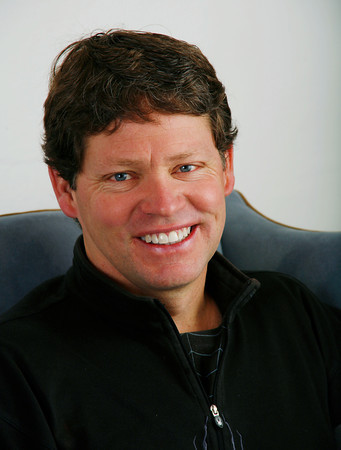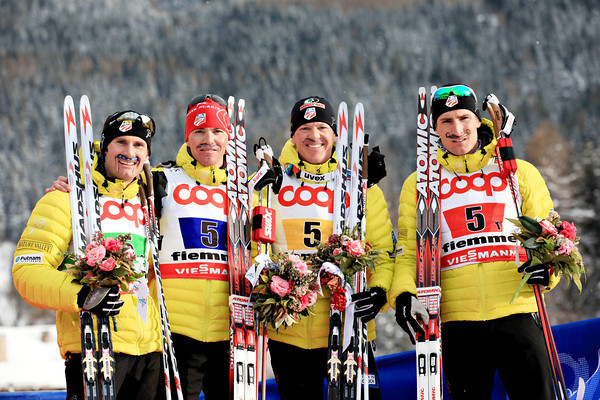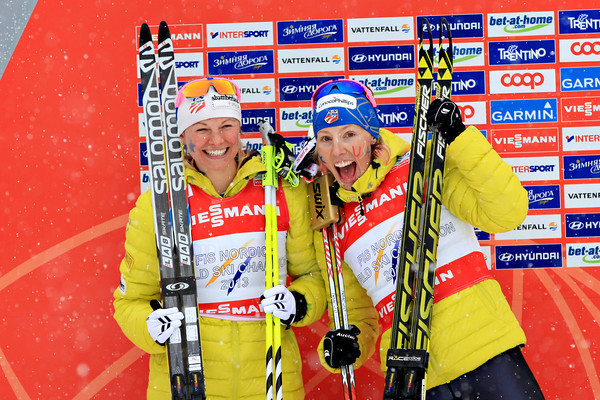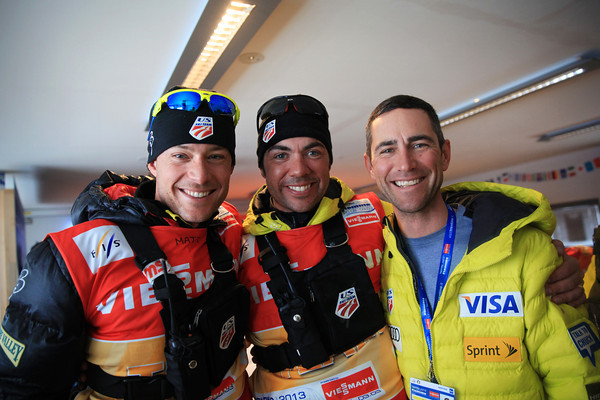No one on Planet Earth — repeat, no one — has more heart, will, desire, call it what you will, than Lindsey Vonn. So her announcement Tuesday that she won’t be able to ski next month at the Sochi Games can reasonably mean only one thing, and by this no one should draw any conclusions about any NFL players who have made incredible comebacks but under their rules don’t get tested for, say, human-growth hormone:
It is absurd, far-fetched indeed, to come all the way back from a world-class knee injury in under a year when you must comply with Olympic-style drug-testing protocols.
Four years ago, at the Vancouver Games, Vonn became the first American woman to win the Olympic downhill. In an announcement she posted Tuesday to her Facebook page, Vonn said she was “devastated” she would not compete in Sochi.
The “reality,” she said, is “my knee is just too unstable to compete at this level.”
Last February, at the world alpine ski championships in Austria, Vonn tore two ligaments in her right knee and broke a bone in a spectacular fall. In November, she crashed again; that tore the surgically repaired ACL. In December, she sprained her MCL during a downhill in Val d’Isere, France.
Vonn also said she is having surgery now in a bid to be ready for the 2015 alpine world championships in her hometown, Vail, Colo.
Since no one works harder, she will — barring any more setbacks — be ready.
A few more realities:
Vonn was widely expected to be the biggest star on the U.S. team in Sochi.
She — like short-track speed skater Apolo Ohno in 2010 — is one of the few who have crossed over from the comparative anonymity of winter sports to become a mainstream celebrity. And then there’s the whole Tiger Woods thing.
She will be missed.
That said, the U.S. alpine team should still be very, very good.
Ted Ligety is the best giant-slalom skier in the world, and won three golds at last year’s alpine world championships. Bode Miller is simply the best male skier the United States has ever produced and, after taking last year off, has shown signs of coming back strong this season.
All six of the women on the U.S. “speed” team — that is, downhill and super-G — finished one, two or three in a World Cup event last year. Teen Mikaela Shiffrin is last year’s slalom champion. Julia Mancuso has not had a top-10 finish this season, true, but does have three Olympic medals and a track record of consistently rising to the pressure of the big stage.
Math for a moment or two:
The U.S. alpine team won eight medals in Vancouver. Vonn won two, that downhill gold and a super-G bronze. Would she have won medals in Sochi? Was the U.S. Olympic Committee counting on Vonn in its medals calculations (which it insists it doesn’t do)? Again, realities here.
Same deal with Evan Lysacek, who won gold in men’s figure skating in Vancouver but hasn’t competed since. Do you really, seriously think the USOC was counting on him to win in Sochi? When he bowed out a few weeks ago, did that alter anyone’s projections?
Reality, everyone.
The U.S. Ski Team — everyone from the Nordic combined guys to snowboarders to the alpine racers — won 21 medals in Vancouver.
Overall, the U.S. team won 37. That topped the medals table.
In Sochi, the U.S. team could legitimately figure, conservatively, to win 30. Aggressively, 40.
For real.
For sure the Vancouver Games were akin to a home Olympics, and that probably helped the U.S. team. But here is what is going to help the U.S. team in Sochi:
In Vancouver there were 24 snowboard and freeski medal opportunities. In Sochi, 48. These are the actions-sports events in which Americans typically rock.
In Vancouver, moreover, the Americans didn’t win even one medal in cross-country or biathlon.
To return to football, as it were: it is an enduring football cliche that when one guy goes down, another steps up.
Translation: the U.S. Olympic Team itself is still loaded with talent. Barring further injury:
Shaun White, who threw the Double McTwist 1260 to win gold in the snowboard halfpipe in Vancouver, has now added another 180 degrees of twist. The thing is now called a Frontside Double Cork 1440.
A simple explanation: the winning run in Vancouver was two flips and three and a half spins. White has now added another half-revolution of twist inside the two somersaults.
The U.S. women’s cross-country team, led by Kikkan Randall, stands ready to win its first-ever Olympic medals. The Americans haven’t won a medal of any kind in cross country since Bill Koch in 1976.
America, meet Nick Goepper. He is 19 years old, 20 in March, and does slopestyle — skiing, not boarding. (White does it boarding as well.) Slopestyle is when you navigate a course filled with rails, jumps and other obstacles and do tricks for amplitude and style points.
Did you know you can become a champion slopestyle artist from Lawrenceburg, Indiana? Growing up on a hill with a vertical drop of all of 400 feet?
Goepper won gold at the X Games in Aspen last January.
On Dec. 21, Goepper became the first skier to grab a spot on the first-ever U.S. freeski Olympic team by virtue of his second-place finish in a Grand Prix slopestyle event at Copper Mountain, Colorado. The third of five Olympic qualification events gets underway Wednesday and runs through Sunday in Breckenridge.
When he qualified for the Olympics, Goepper was naturally asked about it.
“It’s not grueling at all,” he said. “It’s a dream come true. It’s super-fun. The Olympics add a bit more pressure but we’re just out here trying to get creative and have fun.”
The thing is, every Olympics produces its own history. One of the new realities of the 2014 Olympics is that slopestyle — in both its board and ski iterations — is poised to explode in super-fun on television screens, tablets and cellphones across not just the United States but the world.
It won't be the same without Lindsey Vonn in Sochi.
But she would be the first to tell you — it’s not all about her.
One more reality: it never was.
















